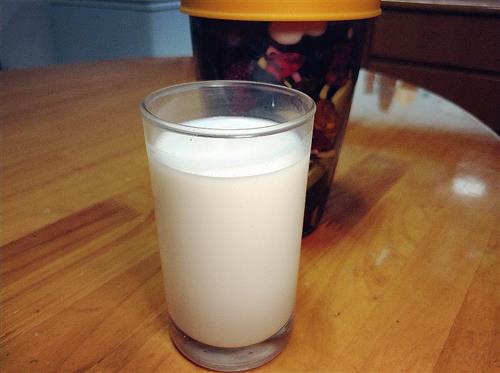
Privacy statement: Your privacy is very important to Us. Our company promises not to disclose your personal information to any external company with out your explicit permission.
Select Language
Probiotics support the intestinal system and enhance immune function. Moreover, they can also prevent obesity and improve mood.
You must have heard about probiotics in yogurt, but what foods are hiding these beneficial little ones? Officially there is no specific recommendation for probiotic supplementation, so for now, the following 9 foods and beverages are more than good.

Cheese
Not all cheeses are good sources of probiotics, but there are soft, fermented cheeses such as cheddar cheese, Swiss hard cheese, Parmesan cheese and more. Probiotics contained in cheese can survive in the intestines and continue to fuel your health.
These cheeses are made from lactic acid bacteria and made into crispy cheeses. They are fermented for days, weeks or even years, and probiotics are also created in this process. Some cottage cheeses marked with "active substances" also contain probiotics.
Add 30 grams of soft cheese or 1/2 cup of cottage cheese to your daily snacks to gain extra protein and calcium.
2. Buttermilk
This strong-tasting milk is not made from butter, it is fermented by lactic acid bacteria, and probiotics are cultivated. You may not know how astonishingly low the calories of buttermilk is: a cup of low-fat buttermilk has only 98 calories and provides us with 28% of the daily calcium requirement and 8 grams of protein.
But you need to know: When you are cooking buttermilk, you kill the probiotics. Therefore, cookies baked with it have no effect. Drink directly, or add seasoning in cold soup, homemade salad dressing and risotto.
3. Red wine
Red wine, like pistachios, only contains prebiotics that give the body probiotics nourishment. The study found that the amount of beneficial bacteria in the gut microflora increased significantly after four weeks in two glasses of red wine per day compared to gin or non-alcoholic red wine. Red wine polyphenols, powerful antioxidants, and alcohol may be the reason.
Extra surprise: The blood pressure, triglyceride, and cholesterol levels of the friends who participated in the study all decreased. It is recommended to stick one cup a day.
4. Soybean meal
Soybean meal is a kind of soy product made with soybean paste. It has more meat taste and texture than tofu, and it contains twice as much protein. It is advisable to buy organic soy products or brands with non-GMO labels. Genetically modified products may trigger allergies, inflammation, and even increase the risk of cancer. They may also hit pesticides.
A premium brand can be purchased in the cold storage area of a food store and then 120 grams of cardamom flavored in French fries, salads and tacos.
5. Kombucha
Bottled or canned Kangpu tea is sold in natural food stores or food chain stores. It has a taste of berry, ginger and mango in its taste. Since it is fermented by bacteria and yeast, it has a natural soda taste.
Although there have been reports that it can cure many diseases, it has not been supported by research results. But you can indeed drink a cup of Kombucha for health. Compared to regular soda, it cuts calories by half and has only one-fourth of the sugar.
6. Pistachio nuts
Pistachios are the first choice for snacks: Pistachios between 50 grams and 100 grams per day will increase the level of intestinal flora. The nuts themselves do not contain probiotics, but only contain prebiotics. The performance of big almonds is slightly inferior to that of pistachio nuts.
Choose a pistachio with the skin and observe how much leather you have packed so that you do not eat too much.
7. Miso
Miso is produced after shelving and fermentation of soybeans. This process produces probiotics. One tablespoon of miso contains only 40 calories, but the salty taste is very rich, equivalent to 1/3 of the daily sodium intake - so use it with caution.
Three Usages: Add a teaspoon of salad dressing and brine to replace salt. When you go out to eat sushi, you can come to bowl miso soup. It can be bought in large supermarkets or specialty food stores.
8. Kimchi
These fermented, slightly spicy cabbages appear more frequently in the menu. Cabbage only needs salt to ferment, summoning the help of probiotics.
In addition to its beneficial effects on the health of the intestines, Korean kimchi is also rich in vitamins, which can prevent the occurrence of infectious diseases. Refrigerated areas in food stores or large food stores are sold.
9. Banana Honey Oatmeal
None of the three foods contain probiotics, but they contain prebiotics. They are complex sugars, and most importantly they only stimulate the growth of beneficial bacteria, not harmful bacteria with potentially pathogenic or spoilage activity.
Treating them as delicious breakfasts allows us to supply nutrients to our intestinal tract and promote intestinal health.
Mail a questo fornitore
January 27, 2024
January 07, 2022

Privacy statement: Your privacy is very important to Us. Our company promises not to disclose your personal information to any external company with out your explicit permission.

Fill in more information so that we can get in touch with you faster
Privacy statement: Your privacy is very important to Us. Our company promises not to disclose your personal information to any external company with out your explicit permission.